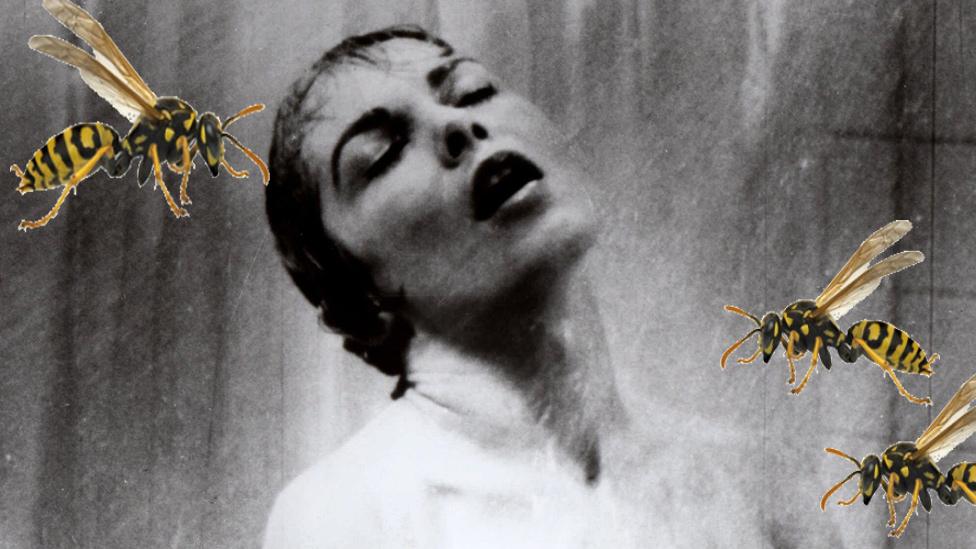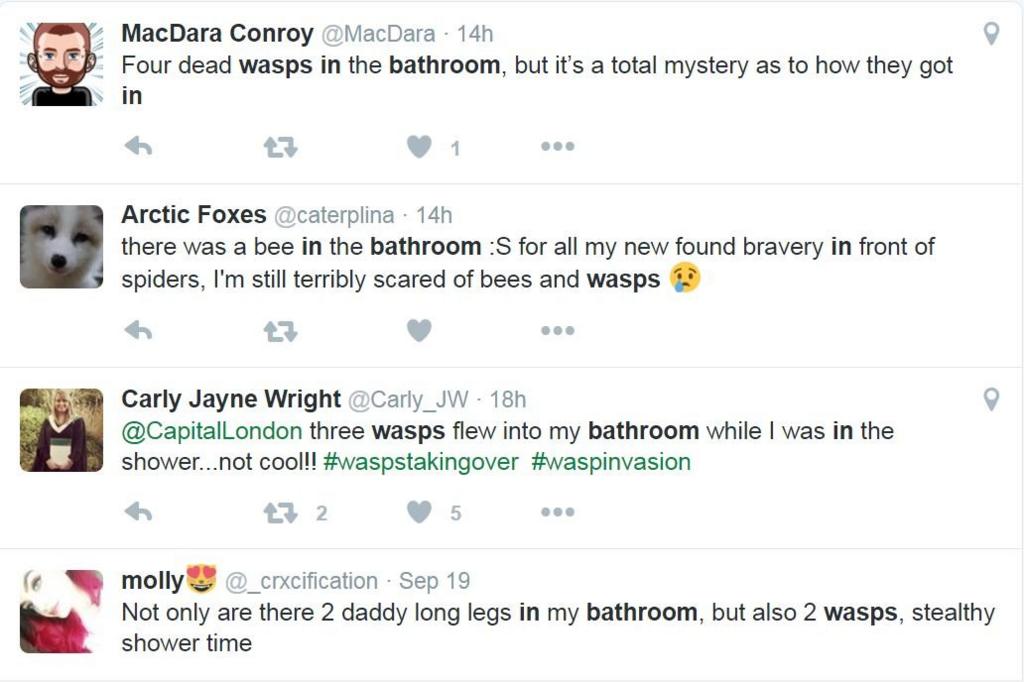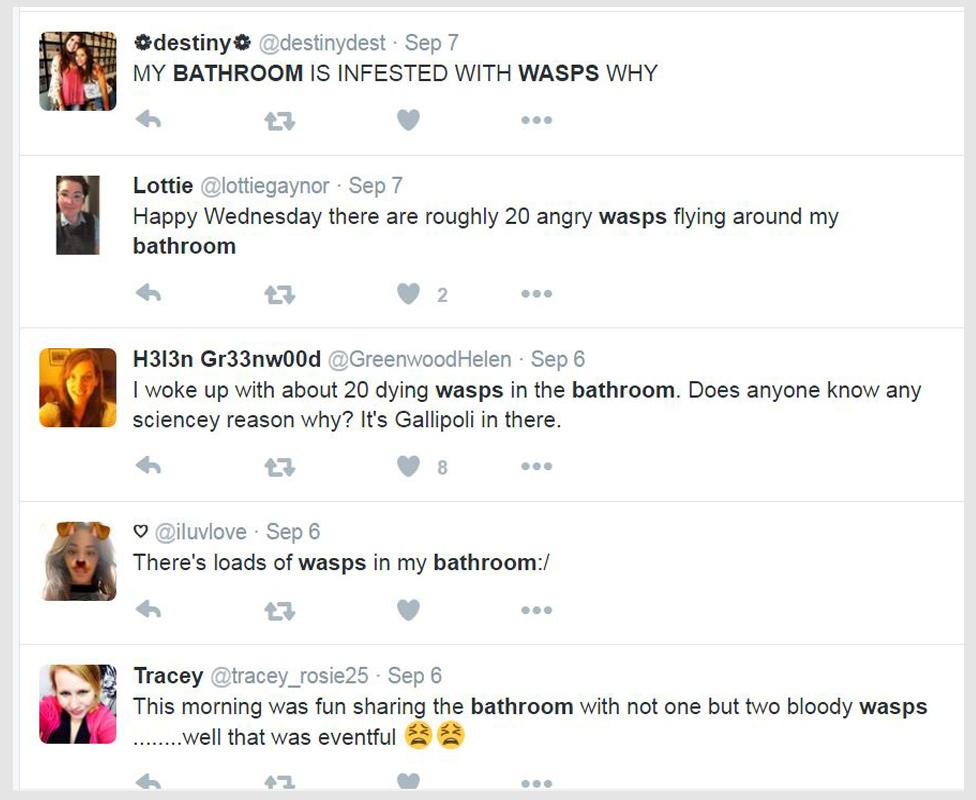Why are there wasps in my bathroom?
- Published

In the past week there's been a 1,000% rise in the number of people searching Google to find out when UK wasps will die, while scores of Twitter users have shared tales of emerging from the shower to find themselves surrounded by the pesky buzzers. What's going on?
Being in the same room as a wasp can be a worrying experience - especially if that room is the bathroom, where you're often exposing tender flesh all the more susceptible to an unpleasant sting.
It's one thing to beware of wasps outside the home, as a poor woman from West Sussex found out when she was bombarded after her dog disturbed a nest. But wasps are also keen on building their nests inside, according to Wasp Removal UK.
"Wasps will build nests in wall cavities, loft spaces and just about any other suitable void they find," the organisation says.
They can enter the house easily through an open door or window - or more cunningly through a vent, such as the type you find in bathrooms.
Householders tend to notice the ones that come through in obvious ways - but the ones which have built a home in a vent often won't be spotted until they're flying about.
Wasps in the bathroom, wasps in the eaves
Fruity shower gels
Paul Hetherington, from insect charity Buglife, says there are actually fewer wasps around this year compared with last year.
"It was a very bad winter for both wasps and bees, because it didn't get cold enough for them to hibernate. That means they weren't able to conserve their energy and died off.
"It's just this year, we're noticing them a lot later in the year. It's usually in the middle of summer when there are a lot of sweet things like blackberries about.
"But wasps which can't get to blackberries tend to venture into houses where there are sweet things."

The wasps we see in bathrooms are likely to be worker wasps. Their job is to feed nectar to the queen wasps. When they do that, they "get rewarded by the wasp equivalent of honey", Mr Hetherington explains.
When the queen has had enough sustenance to last the winter, she leaves the nest and goes off to hibernate - leaving the workers both out of a job and addicted to sweet things.
That's when they venture into bathrooms, lured by the scent of sweet shampoos and soaps. So if you're busy cleaning yourself with a fruity shower gel, you're also sending delicious aromas to wasps.
Worker wasps don't last the winter - they die off every year.
Wasps are also attracted to bright lights, like the ones you get in bathrooms. This means while you're singing in the shower, the striped marauders could be waking up and buzzing toward the lights.
At this time of year there's an additional hazard - "drunk" wasps.
Paul Bates, from pest-control firm Cleankill Environmental Services, says wasps become "drunk" on fermenting fruit and tipsy wasps are extra-bold.

What should you do?
Mr Bates issued a chilling warning - if you try to swat a solitary wasp, it could "call for back-up" (a pheromone is released which attracts nearby wasps) and you could end up being attacked by a swarm.
So try not to swipe at them - like in many aggressive situations, it's better to walk away.
Often if you close the doors and turn the lights out in a room and leave the window open, the wasps will leave of their own volition - unless there's a live nest in your vents, of course.
In that case, it's best to call a pest control specialist.
In the UK, most wasp nests "die" in the autumn. Occasionally a very large nest will continue if the winter is mild and there is a local food source. And wasps are profligate creatures - they won't reuse a nest the following year, so if you find a dead nest it's safe to chuck away.
The queen, though, will emerge ready to lead her entourage the following year.